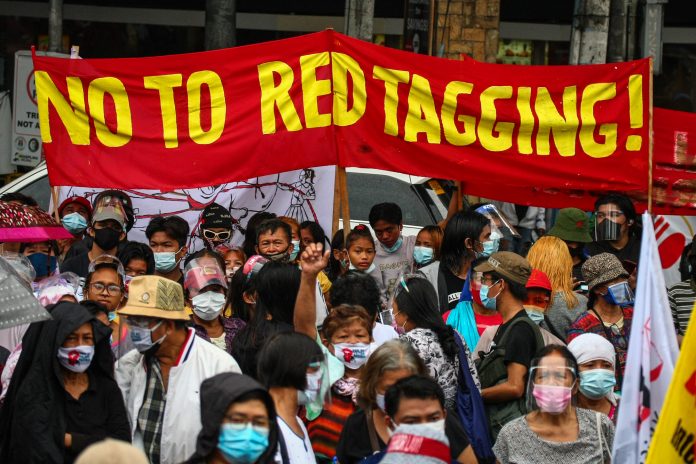The Philippine government’s persistent practice of “red-tagging” poses a severe threat to activists and critics, warned Human Rights Watch (HRW) in its World Report 2024.
The organization highlighted that government officials and their supporters extensively employ both traditional and online media to accuse individuals and groups of having ties to the country’s communist insurgency.
“The Marcos administration should end the pernicious practice of ‘red-tagging’ government opponents,” urged Bryony Lau, deputy Asia director at HRW.
“Red-tagging is a form of harassment that can lead to deadly abuses and runs counter to Marcos’s pledge to promote human rights,” Lau added.
In the 740-page World Report 2024, HRW reviewed human rights practices in over 100 countries. Executive Director Tirana Hassan, in her introductory essay, reflected on 2023 as a consequential year marked by human rights suppression, wartime atrocities, selective government outrage, and transactional diplomacy.
She called on governments to consistently uphold their human rights obligations.
For decades, Philippine officials have engaged in “red-tagging” against leftist political activists, journalists, teachers, clergy, Indigenous leaders, youth activists, politicians, and others perceived as supporters of the communist New People’s Army, according to the report.
The report highlighted a surge in red-tagging during President Rodrigo Duterte’s administration, a trend that continues unabated under President Ferdinand Marcos Jr., showing no discernible efforts to curb this contentious practice. Those targeted often find themselves subjected to physical attacks.
Despite the Marcos administration’s professed commitment to enhancing human rights and fostering international cooperation, concerns persist.
In 2023, the acquittal of Nobel Peace laureate Maria Ressa and her news outlet, Rappler, in a tax evasion case marked a notable development. Leila de Lima, a vocal critic of Duterte and a prominent human rights defender, was granted bail after enduring nearly seven years in police detention.
Nevertheless, enduring challenges persist, including deep-seated issues such as extrajudicial killings in the “war on drugs,” enforced disappearances, and the torture of suspects in custody.









